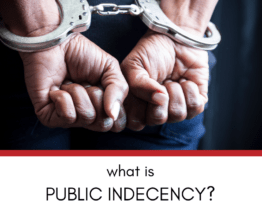
When you’re accused of a crime, regardless of whether you’re innocent or guilty, you have four important rights in the United states. These rights carryover to everyone, regardless of citizenship status, criminal history or anything else. This guide explains these rights so you know how things work if you’re accused of committing a crime.
4 Important Rights All Criminal Defendants Have in the U.S.
These are the four rights that all criminal defendants have in the United States:
- The right to a speedy trial
- The right to a jury trial
- Miranda rights
- Protection against incriminating yourself
These rights aren’t contingent upon anything. That means no matter who you are or where you’re from, you’re entitled to these basic protections. Here’s a closer look at each.
Criminal Defendant Right #1: The Right to a Speedy Trial
The Sixth Amendment to the U.S. Constitution guarantees any criminal defendant the right to a speedy trial. This right prevents people from being held in jail without trial for an extended period of time. Though there is no exact number of days that the state is allowed to keep you behind bars while awaiting trial, this right helps ensure that you aren’t stuck in jail without even being given an opportunity to defend yourself from the charges against you.
Criminal Defendant Right #2: The Right to a Jury Trial
Every criminal defendant in the United States has the right to be tried by a jury rather than just a judge. There are some cases in which it makes more sense to have a bench trial – that is, a trial with no jury – but everyone in the U.S. has the right to a trial by a jury of their peers. Only a defendant may decide whether they want a jury trial or a bench trial. Judges, prosecutors and others are not allowed to make that decision for a defendant.
Related: What does beyond a reasonable doubt mean?
Criminal Defendant Right #3: Miranda Rights
You’ve probably heard of Miranda warnings – that’s the spiel that a police officer is supposed to give you when you’re arrested. (“Anything you say can and will be used against you in a court of law. You have a right to an attorney. If you cannot afford an attorney, one will be appointed for you.”) Everyone has the right to legal representation. Many people choose to hire an attorney on their own, but in some cases, that’s not financially possible. If you cannot afford an attorney, you must tell the judge in your case that you want one but don’t have the funds available. You can’t just assume that the court will provide you with a lawyer. A judge may only appoint an attorney for you if you let them know that you want one but can’t afford to pay an attorney’s fees.
Related: When do the police have probable cause to arrest someone?
Criminal Defendant Right #4: Protection Against Self-Incrimination
You don’t have to incriminate yourself in court. In plain English, that means a defendant can’t be forced to testify against their own interest.
Related: 3 things you should do if police pull you over for DUI in Illinois
Do You Need to Talk to an Attorney?
If you’ve been accused of a crime, we may be able to help you – and don’t worry: It’s completely confidential. Call us at 847-920-4540 or fill out the form below to schedule your free, private consultation with an experienced and skilled Chicago criminal defense attorney now.
Contact Us
"*" indicates required fields









